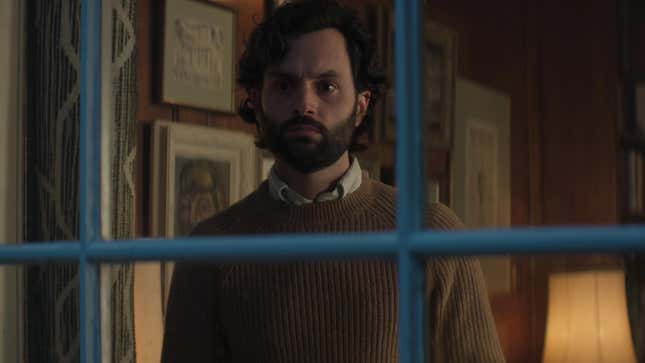Wow, I Hated the ‘You’ Season 4 Finale
At some point, watching an abusive white guy get away with everything starts to feel tiresome, no matter how realistic it may be.
EntertainmentTV

In case it wasn’t obvious, this story contains spoilers for the Season 4 finale of You. Do not read it if you want the ending to be a surprise. I mean it.
I love You (the hit Netflix show, that is, not you the reader, sorry). It’s wonderfully weird; main character Joe Goldberg’s internal monologue is biting and hilarious; and star Penn Badgley is a phenomenal actor with some of the craziest eyes I’ve ever seen. Granted, I didn’t always like this show; I especially resented the premise of the Season 1 finale, in which a man imprisoning and killing his girlfriend is presented purely for its shock factor, rather than an example of the all-too-real horrors of domestic violence.
-

-

-

-

-

-

-

-

-

-

-

-

-

-

-

-

-

-

-

-

-

-

-

-

-

-

-

-

-

-

-

-

-

-

-

-

-

-

-

-








































